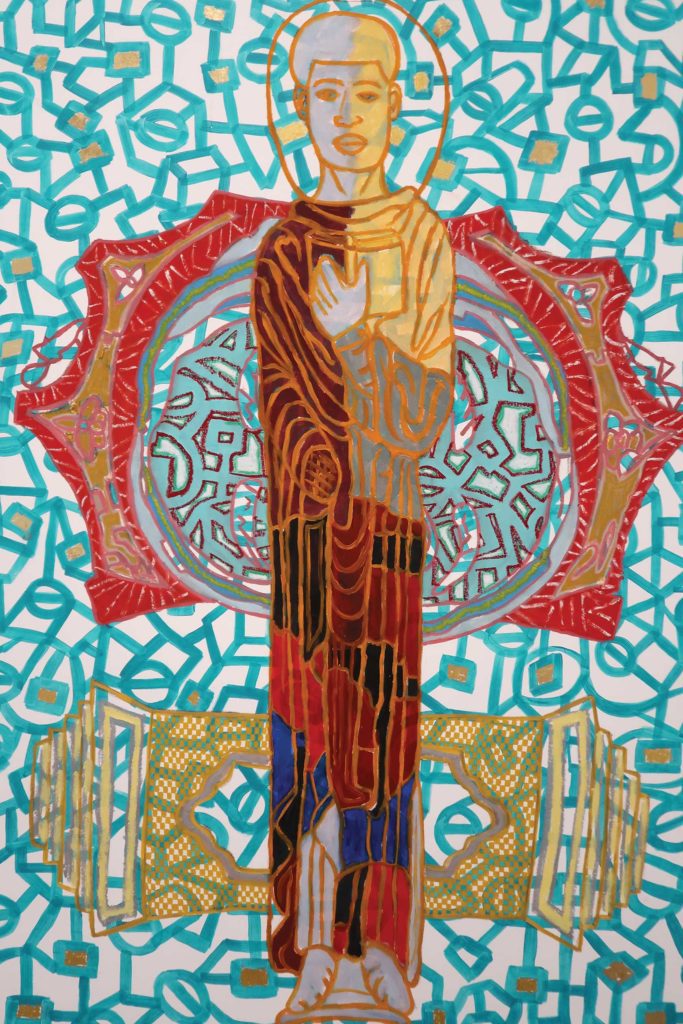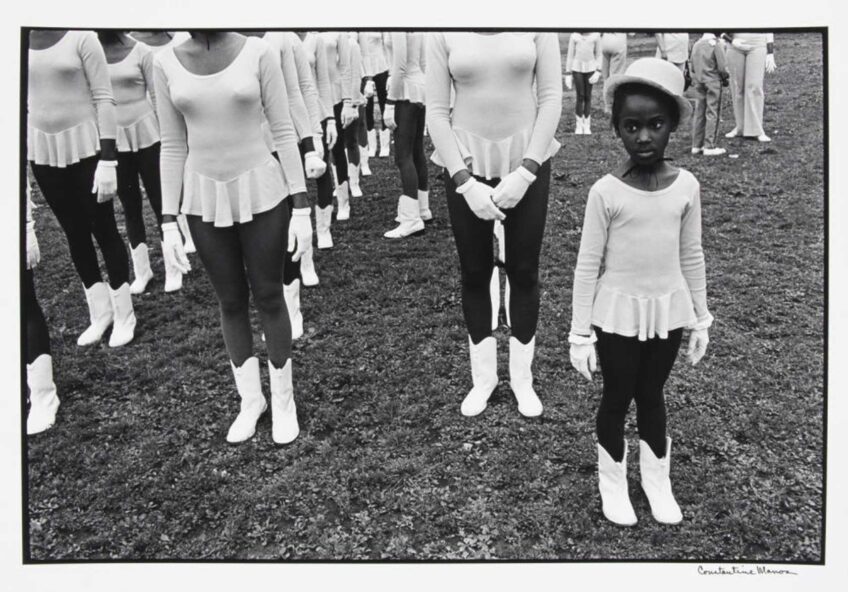New works by three local artists in Foster Prize exhibition at ICA Boston

Now in its ninth year, the biennial James and Audrey Foster Prize Exhibition of the Institute of Contemporary Art/Boston (ICA) showcases local artists of note. The 2021 Foster Prize Exhibition, organized by ICA assistant curator Jeffrey De Blois and on view at the ICA through January 30, 2022, presents new works by Marlon Forrester, Eben Haines and Dell Marie Hamilton. Each transforms existing material — such as a swath of cultural history or a familiar scene — into a vessel of larger and deeper stories.

Marlon Forrester, “StTrayvonGeorge23.” From the series “If Black Saints Could Fly 23: si volare posset nigra XXIII sanctorum” 2021. PHOTO: SUSAN SACCOCCIA
Born in Guyana, Forrester, 45, is a resident artist in the African American Master Artist Residence Program at Northeastern University. Forrester shows five works from his series, “If Black Saints Could Fly 23: si volare posset nigra XXIII sanctorum” (2021). Its title links this cycle of paintings to the legend of flying Africans, an abiding folktale of the diaspora in which escaped slaves head back to Africa.
Backed by oceanic turquoise filigrees that echo the geometric patterns on basketball courts, Forrester’s paintings portray iconic figures with the minimalist curves of Byzantine and Ethiopian Orthodox statues. His icons venerate those who stand with the marginalized: Jesus, Trinidadian calypso star Mighty Sparrow, and three figures pairing two men: artist Jean-Michel Basquiat and President Barack Obama; Trayvon Martin and George Floyd; and recently deceased elders Ray and Sly, whom the artist befriended through playing basketball.
Not unlike Forrester, painter and graphic designer Eben Haines, 31, creates works that lend visibility to the unseen.
Since March 2020, Haines and his partner Delaney Dameron have curated a pandemic-proof, online exhibition space in their apartment. Their Shelter in Place Gallery, a miniature 20-by-30-inch structure, has hosted solo shows for 75 local artists who craft original works to a 1:12-inch scale.
At the ICA, Haines envelops visitors with a three-room installation, “Facades” (2021), which mingles past and present and the phantasmal with the natural. Inviting a long look, its collages, landscape paintings, portraits and Shaker-style furniture evoke rural New England scenes. Yet, viewed close up, the familiar scenes become strange. Unexpected shadows turn what seems like a landscape into theatrical backdrop. References to art history and the occult abound. See-through candles float across fields. Shrouded figures hold a séance. Roman busts appear in portraits. Boxes of memory-laden items resemble those of Joseph Cornell (1903-1972). Worn, scarred objects are displayed like sculptures. A stack of wooden slats awaits use.
Multimedia artist and curator Dell Marie Hamilton, 50, has fashioned an installation out of belongings she inherited from the renowned art historian and teacher Susan Decker, who died in 2016. Decker was an expert in African American art and culture, and the enviable trove on display includes a wealth of LPs, cassettes, slides, and books spanning mid-century and contemporary Black writers and artists.
In “The End of Susan, The End of Everything” (2021), Hamilton displays Decker’s possessions as they were arranged in her Cambridge apartment. Among them, Hamilton inserts two videos that inject her own live, Latinx presence into this collection of a white art historian, as she jousts with two giants of white modernism. In one, Hamilton’s brown limbs ripple out from behind a projection of Picasso’s “Les Demoiselles d’Avignon,” a painting said to be influenced by African mask design. The other shows a wig-wearing Hamilton delivering Decker’s lecture on Jackson Pollock and impersonating Pollock as he makes a drip painting.







